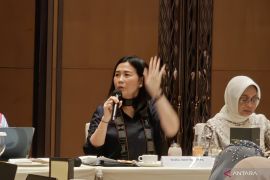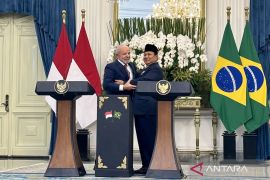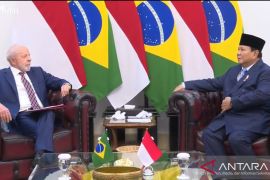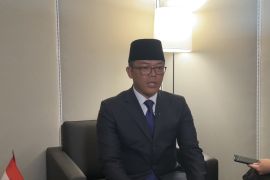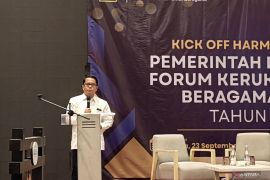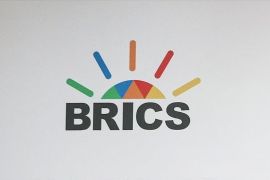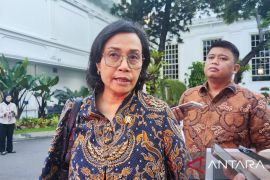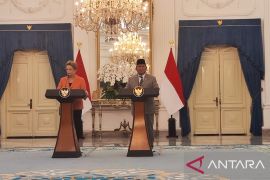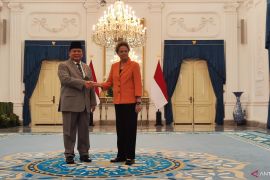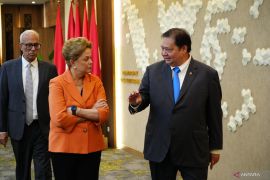BRICS, an intergovernmental organization, was established to promote a more balanced world order by amplifying the voices of developing countries in global decision-making.
By joining BRICS, which includes Brazil, Russia, India, China, South Africa, Egypt, Ethiopia, Iran, and the United Arab Emirates (UAE), Indonesia aims to challenge the dominance of developed nations in international financial institutions such as the IMF and the World Bank.
For instance, the New Development Bank (NDB), established by BRICS states, focuses on financing infrastructure and development projects in member countries.
As of January 6, 2025, Indonesia's full accession to the BRICS means that this economic bloc now represents over 40 percent of the world’s population and about 27 percent of the global gross domestic product (GDP), making it a significant player in the world economy.
Indonesia’s participation in the BRICS was not surprising, as discussions began in 2023 at the BRICS summit in Johannesburg, South Africa.
Indonesia's strategic position as the largest developing country in Southeast Asia enhances the group's relevance, showcasing a shift in global economic dominance.
However, it is essential to consider the potential benefits Indonesia might gain from BRICS membership and the risks that may come with it amid the increasingly dynamic global situations.
The BRICS was formed to address the need for a more balanced global hierarchy in light of the prevailing influence of Western institutions, such as the IMF and the World Bank.
Indonesia's membership presents an opportunity to contribute to a more inclusive economic order, addressing issues such as sustainable development financing, reducing global economic inequality, and reforming the international financial system.
In addition, Indonesia's presence bolsters the representation of developing countries within the BRICS. However, the extent of the benefits Indonesia will derive from its BRICS membership hinges on the strategic actions taken.
Chairman of the Indonesian Chamber of Commerce and Industry (Kadin), Arsjad Rasjid, noted that Indonesia's membership in the BRICS marks a historic moment that enhances its status as a global economic player.
He believes the membership will create substantial opportunities for enhanced trade, economic collaboration, and investment cooperation between Indonesia and other BRICS nations, thereby boosting sustainable growth.
One major benefit could be access to the NDB, which provides a more flexible and adaptable financing option for infrastructure projects compared to conventional loans from Western sources.
The NDB's funding could significantly support Indonesia's strategic projects, such as the construction of Nusantara, the new capital city, energy transition efforts, and the development of special economic zones.
Beyond financial assistance, BRICS membership could facilitate greater trade and investment opportunities.
The member countries collectively represent a large market, enabling Indonesia to export key commodities, such as palm oil, rubber, and manufactured goods.
Moreover, huge opportunities for technology transfer and increased cooperation in renewable energy can accelerate Indonesia’s advancement toward a green economy.
Free and active
However, joining the BRICS has its challenges. While the group appears unified, it is actually quite diverse, with Brazil, Russia, India, China, and South Africa having varying economic and geopolitical interests.
These differing priorities may have the potential to create conflicts that complicate decision-making within the group.
There are also geopolitical risks, as Indonesia's membership in the BRICS could be perceived as a shift away from its traditional Western alliances.
Member of the Indonesian House of Representatives (DPR), Amelia Anggraini, emphasized that as a permanent member of the BRICS, Indonesia must deliver tangible benefits for its citizens.
While the advantages of membership may not be immediately visible now, addressing issues such as economic inequality and the digital divide requires more than simply joining a global alliance.
The government should develop strategies to ensure that the benefits of BRICS membership reach grassroots communities. Otherwise, membership may become a mere symbolic gesture without real impact.
Indonesia must strengthen its role as a communicator within BRICS, taking a neutral stance and its "free and active" foreign policy to mediate diverse interests among member states.
This approach allows Indonesia to advocate for inclusive and development-oriented global agendas.
Indonesia should also prioritize its national objectives within the BRICS framework rather than merely adapting to the group's agendas.
For instance, in the context of energy transition, Indonesia could propose establishing a special fund within the BRICS to support the development of renewable energy technology in developing countries.
In addition, Indonesia could encourage greater involvement of the private sector and civil society in BRICS decision-making to ensure more relevant and impactful policies.
Indonesia's membership in the BRICS marks a significant step in global economic diplomacy. However, Indonesia must utilize this position to fulfill its strategic goals.
In facing a complex global geopolitical and economic landscape, Indonesia must wisely navigate opportunities while handling challenges.
BRICS membership should be viewed as a tool for enhancing Indonesia's global standing. This requires flexible but brave approaches that abandon old paradigms.
With a strategic approach, BRICS can be a stage for Indonesia to demonstrate its relevance and progressive global leadership.
Related news: Govt considers importing Russian oil following BRICS membership
Related news: RI to bridge Indo-Pacific, developing nations' interests
Translator: Hanni S, Kenzu
Editor: Azis Kurmala
Copyright © ANTARA 2025


